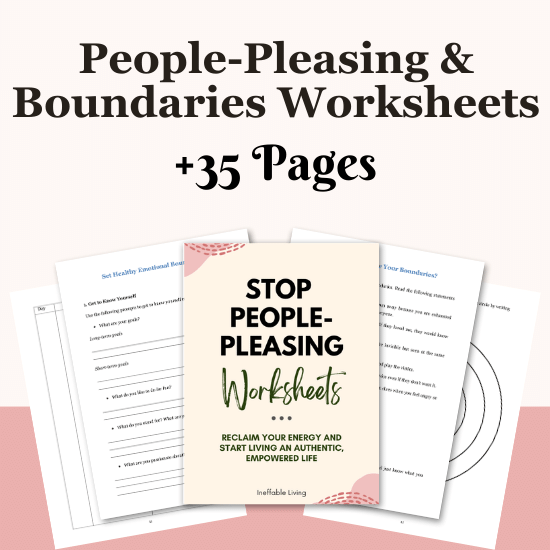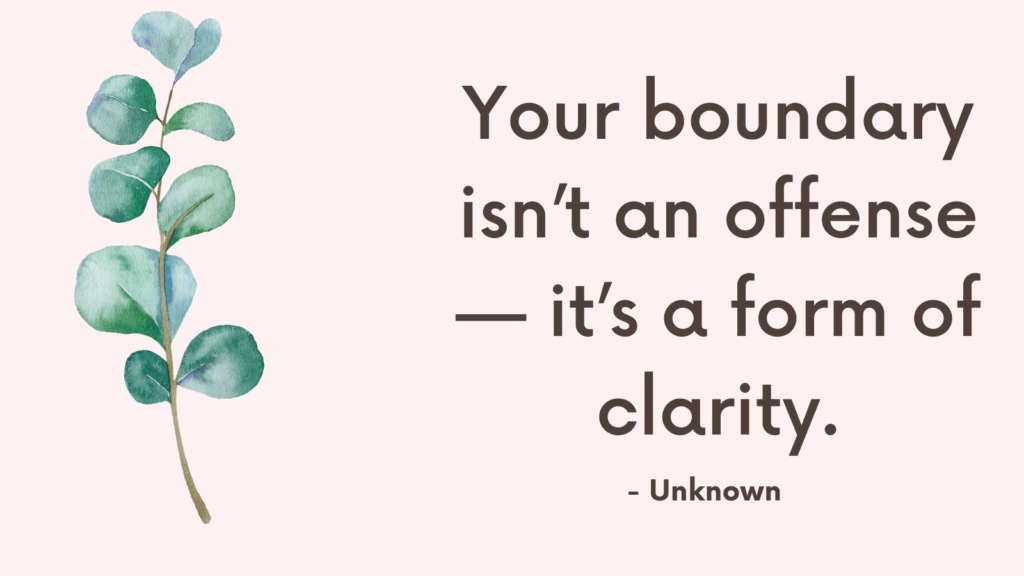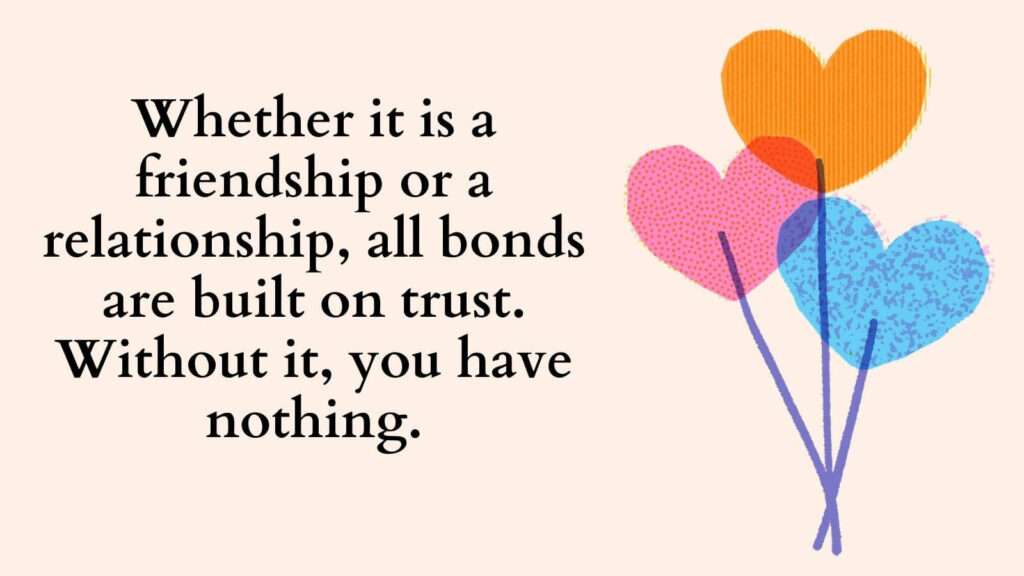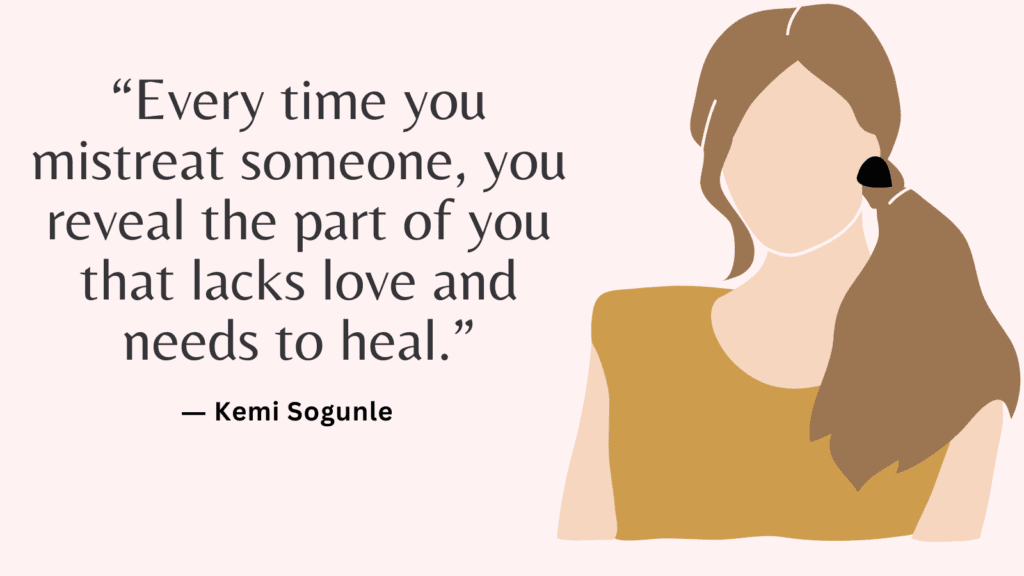Many people struggle with setting boundaries—not because they don’t want to, but because they’ve internalized myths that make it feel wrong, selfish, or impossible. These beliefs often come from childhood, culture, or past relationships. Letting go of these myths is key to reclaiming your voice, space, and peace of mind. Here’s what might be keeping you stuck—and what’s actually true.
Why We Believe Them
- We were raised to believe that prioritizing others is a moral obligation, so any form of self-protection feels wrong.
- Emotional withdrawal, punishment, or coldness in response to our honesty taught us that speaking up leads to disconnection.
- Cultural messages glorify selflessness, especially in caregiving roles, making us feel like rest or limits are weaknesses.
- If we grew up in environments where our needs were ignored or invalidated, we learned to doubt our right to say no.
- We associate others’ discomfort with personal failure, because we were made responsible for other people’s emotions early on.
- Deep down, we fear that setting boundaries will expose us as unlovable, so we overextend in hopes of proving our worth.
These beliefs take root in survival strategies and social conditioning — but they no longer serve the version of us that’s trying to grow.
Related: Top 25 Tips On How To Set Boundaries Without Being Controlling? (+FREE Worksheets PDF)
Myths About Boundaries That Keep You Stuck
1. Myth: “Boundaries Are Selfish”
Truth: Boundaries are a form of self-respect.
Caring for your mental and emotional well-being doesn’t mean you’re neglecting others—it means you’re showing up in a more honest and sustainable way.
2. Myth: “If I Set Boundaries, People Will Leave”
Truth: The people who love you will adapt.
Some may struggle at first, but real relationships can withstand honesty. If someone leaves because you respected yourself, they were attached to your compliance—not your connection.
3. Myth: “I Have to Justify or Explain My Boundaries”
Truth: Your boundary doesn’t need to be earned.
A simple “This doesn’t work for me” is enough. Over-explaining often invites debate or guilt, not understanding.
4. Myth: “Setting Boundaries Means I Don’t Care About Others”
Truth: You can care deeply and still say no.
Boundaries don’t close your heart—they protect it from burnout, resentment, and emotional overload.
5. Myth: “If They’re Upset, I Did Something Wrong”
Truth: Their discomfort doesn’t mean you were wrong.
It’s normal for people to resist change, especially if they benefitted from your lack of boundaries. Their reaction is theirs to manage—not yours to fix.
Related: How to Identify and Set Non Negotiable Boundaries?
6. Myth: “Boundaries Are Only for Big, Toxic Situations”
Truth: Boundaries are a daily practice.
They show up in small moments: how you respond to texts, how much time you give, when you say “yes” or “no.” You don’t need a crisis to start protecting your space.
7. Myth: “Once I Set a Boundary, It Should Be Easy to Keep”
Truth: Boundaries are a muscle, not a switch.
It’s normal to wobble, feel guilt, or backtrack. Keep practicing. Consistency builds clarity and confidence over time.
8. Myth: “Boundaries Always Have to Be Verbal”
Truth: Some of the strongest boundaries are silent.
Choosing not to engage, limiting your time, or simply changing how you respond—these are powerful boundary moves, even if you never say a word.
9. Myth: “I’m Being Difficult by Having Needs”
Truth: Having needs makes you human—not high-maintenance.
Suppressing your needs doesn’t make you easier to love. It just makes your relationships more fragile and less authentic.
10. Myth: “Good People Don’t Set Boundaries”
Truth: Good people take care of themselves too.
Kindness includes kindness toward yourself. Setting boundaries allows you to give from a place of choice—not obligation or exhaustion.
Related: Top 19 Journal Prompts For Boundaries
Why Some People React Angrily When You Enforce a Boundary
- They’re Used to Your Compliance: When someone benefits from your lack of boundaries, your “no” can feel like a threat to the dynamic they’ve come to expect — even if it was unfair to you.
- It Confronts Their Entitlement: People who feel entitled to your time, energy, or emotional labor may see your boundary as an offense rather than a healthy limit.
- They Feel Exposed or Rejected: A boundary can trigger their own insecurities, especially if they interpret it as criticism, distance, or rejection — even when it’s about your needs, not their worth.
- It Disrupts Control: If someone is used to having control over your behavior or decisions, a clear boundary can feel like a loss of power, prompting them to push back aggressively.
- They’ve Never Seen Healthy Boundaries Modeled: Some people simply don’t understand boundaries because they weren’t taught them. Your assertiveness may confuse or scare them, especially if they equate closeness with total access.
- It Forces Them to Examine Themselves: Your boundary may highlight their own unhealthy behaviors or unmet needs — and instead of reflecting, they project discomfort back onto you.
Their anger is a reflection of their internal struggle, not a sign that your boundary is wrong. Holding firm, without needing to explain or apologize, is often the first act of reclaiming your emotional safety.
Related: Top 10 Books About Setting Boundaries

Conclusion
The myths around boundaries are loud—but they’re not true. You are allowed to take care of yourself without guilt. You’re allowed to change, grow, and redefine what you need. Let go of the stories that keep you stuck, and step into the truth: boundaries aren’t barriers—they’re bridges to healthier, more honest living.



